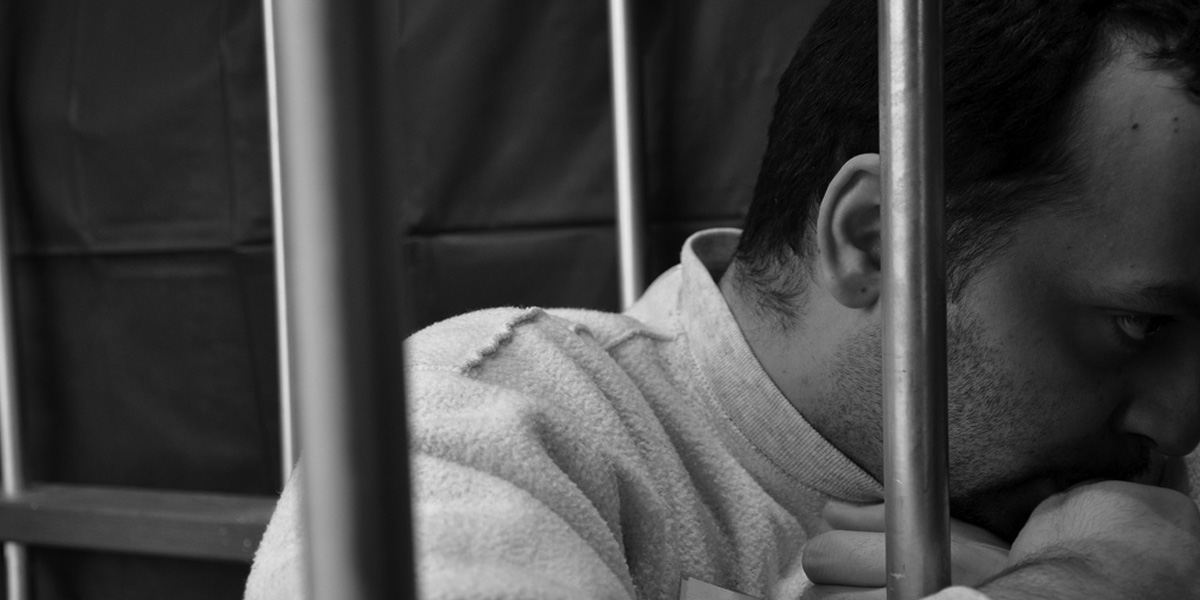Unpicking the web: A genuine rehabilitation revolution
It seems the furore over Chris Grayling’s decision to ban books being sent to prisoners has attracted more public attention than his plans to privatise 70 per cent of the probation service. As one civil servant at a recent roundtable...
It seems the furore over Chris Grayling’s decision to ban books being sent to prisoners has attracted more public attention than his plans to privatise 70 per cent of the probation service. As one civil servant at a recent roundtable observed privately, you may disagree with his ‘rehabilitation revolution’ but he has a convincing story and a clear plan for delivery, which is why the probation service itself has provided the only real opposition to the reforms so far.
The reforms to break up Probation Trusts and hand over rehabilitation of around 220,000 low to medium risk offenders to private firms and voluntary groups are moving more slowly than Grayling would like. But once they do take hold, the coalition will claim them as evidence of their strategy for dealing with the ‘root causes of crime’. While the left may protest at the privatisation by stealth and the folly of payment-by-results for those with complex problems, it is doubtful many will listen. Instead the left needs a compelling story of its own.
To find this, it needs to reach back into its recent past. New Labour’s Reducing Reoffending plan, produced by Tony Blair’s social exclusion unit, shared similar ambitions to Grayling’s rehabilitation revolution. It also provides an example of where it is likely to come unstuck.
Then, as now, one of the key challenges for reducing reoffending was the all-important period between a prisoner leaving the prison gate and receiving their first benefits payment. The unit identified a number of ways to bridge this so-called ‘finance gap’, but institutional barriers within Whitehall and the failure of one government department to accept a solution proposed by the other, meant their recommendations didn’t get very far. As with much of the social exclusion agenda, though much progress was made, inter-departmental wrangling often came before the joined-up local response that could have made a difference on the ground.
Grayling’s model does nothing to overcome Whitehall’s siloed ways of working and could make them worse. The large private companies competing for big contracts from the Ministry of Justice are not in the business of establishing links across the treatment of substance misuse, homelessness support and the mental health system. And yet for people caught up in an often senseless web of services, this integration is exactly what is needed for a breakthrough.
Before it was wound up by Gordon Brown, the social exclusion taskforce, as it ended up being known, began to unpick this web. It did this on the basis that around half of those in prison have also been in drug and alcohol treatment, homelessness services and the mental health system. Not just one of these, but all four. And yet still people are dealt with in one or perhaps two professional categories, rather than as individuals, with the result that there are at least eight national funding streams targeted on people in these systems, each with their own set of requirements and outcomes.
Since then, local authorities like Greater Manchester, South Tyneside and many others have continued innovate, but this has largely come from the local level and not from Whitehall.
One exception to this is the coalition’s Troubled Families programme. Rather than acting as a ‘bolt-on’, as many national programmes have previously done, it is having a lasting impact on mainstream services. Building on New Labour’s family intervention projects, its chief success has been to catalyse local integration of professionals and systems, as well as replacing atomised professionals with one-to-one support; such as in Oldham where the scheme has reduced reliance on a range of call-out or emergency services and is already achieving cost savings.
The Troubled Families approach – local, relational and with a disruptive influence on mainstream services – is also the one needed for a wider group lost in myriad systems for the most excluded, including many reoffenders. A genuine rehabilitation revolution would see Troubled Families style intensive support extended to reach more people, coupled with far greater local control over the array of funding streams involved.
The weakness of Grayling’s reforms lies not simply in their execution and intent, but in the fact that their ambition doesn’t extend beyond the criminal justice system. Perhaps if the probation service had been run with greater local control and integration, it would not have been as easy to break it up and parcel it off with less fuss than a package sent to one of Her Majesty’s prisons.
Clare McNeil is a senior research fellow at IPPR. This article originally appeared in the Spring 2014 edition of the Fabian Review.
